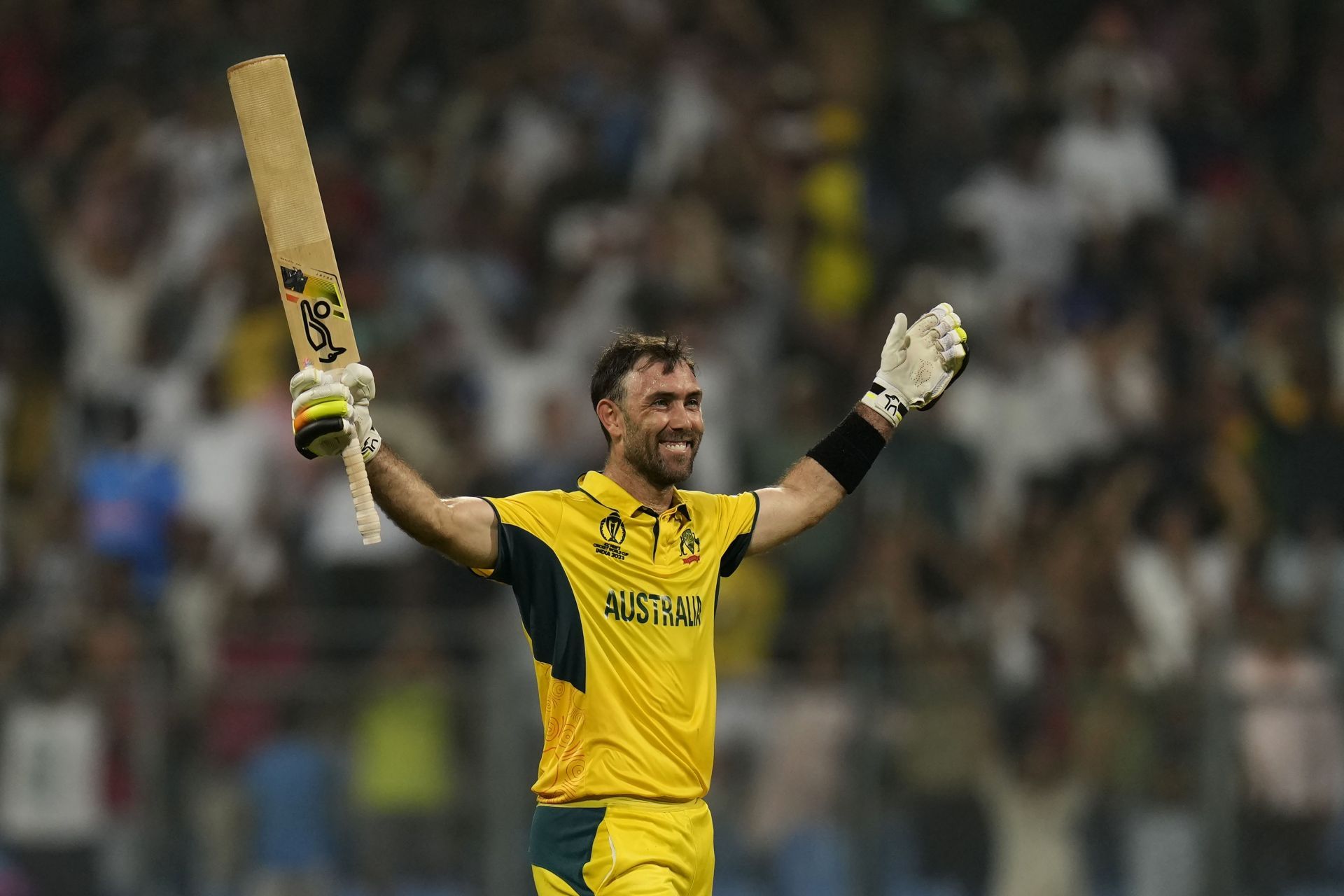
Glenn Maxwell...that is it...that is the story
Glenn Maxwell. That is it. That is the story. And if, for some reason, you were not able to watch it live, well, try and watch as much of it in the highlights. This might seem too curt for a beginning, and it might not seem like a normal article where all the build-up, narrative is set up at the start.
But this was the Maxwell show. The big show. The build-up was done by Maxwell. The narrative was laid out by Maxwell. And of course, the climax and the final crescendo belonged to Maxwell.
Now, for a bit of context. Australia entered the game against Afghanistan with a semi-final spot well within their grasp. A win would secure it, but even if they were to lose, they would have another bite at that particular cherry – on Saturday – against Bangladesh in Pune.
Australia, though, do not like losing in the World Cup. Not after they have quelled fears over their sustainability courtesy a five-game winning run. And certainly not when their semi-final spot was yet to be confirmed.
But they tried to do everything to lose the game, especially under lights. Travis Head departed early. Mitchell Marsh, after a skittish innings, fell. David Warner aimed for the Arabian Sea and lost his off stump. Josh Inglis, expected to shoulder the middle-order burden, wafted at a ball outside off and nicked it to slip.
Marcus Stoinis, despite Australia being five down, went for the reverse and perished to Rashid Khan. And Mitchell Starc, well, he failed to review in time when the ball deflected off the off stump, rather than the outside edge of his bat.
At that point, Australia were 91-7 inside 20 overs against a team that had never beaten them in this format. They needed to get 200 more runs, and while the run rate was not that big a problem, the number of wickets left definitely was.
Glenn Maxwell finished with a double ton, off just 128 balls
What that also meant, though, was that Australia could not sink further. Yes, the predicament was unenviable. But it did liberate Maxwell to an extent. Especially after catches went down and he survived a close lbw shout. Once that sequence transpired, well, it was all over for Afghanistan.
The thing about Maxwell is that he makes hitting look easy. The same ball could disappear over deep mid-wicket, or be reverse swatted over third man. It could also be thumped down the ground, or caressed through cover. All of these things were evidently present in his 201-run knock.
One aspect no one would have accounted for, however, was how much Maxwell was cramping. It was almost heart-breaking to watch someone in so much pain, yet, trying his best to win his country a game of cricket. Those hearts, though, were quickly mended the moment Maxwell took strike and found the fence.
Several of his boundaries were spell-binding. Make no mistake about it. Any knock that he plays, that is a pre-requisite. But the way he battled cramps, from his back, to his hamstring and perhaps through his entire body, is what made it special.
He could barely walk across to the other end, yet, here he was, using his wrists and shoulder strength to clatter the ball to all parts. At times, it seemed as if he was playing table-tennis: just the cocking of the wrists when he was about to make contact.
But then, you quickly realised even a table-tennis player would move his/her body a lot more than Maxwell did and was able to. That was what he overcame. That was what he was up against. That was what makes this, in many people’s eyes, the greatest ODI innings to have ever been played.
Not just the situation Australia were in, but also the physical (and discernible) pain barrier the all-rounder had to breach on multiple occasions. And, of course, the quality of his stroke-play, despite being so overawed by cramps.
That it came in a World Cup, and in a run-chase, and to seal Australia’s record-breaking ninth ODI World Cup semi-final ticket, only adds another layer of magnificence to it.
Appreciate that this sounds a little redundant. But Australia were 91-7. Inside 20 overs. Against a team that had never beaten them in this format. They needed to get 200 more runs.
When a team finds themselves thrust so much into the abyss, they usually lose. When they stare down the barrel to such an extent, they almost always collapse and capitulate further. When sides are this far behind in the match, they ought not to win. They should not win. That is how this sport is played.
If you play this game a thousand or a million times over, chances are that the side 91-7 will lose - possibly every time – most times, ending in a proper hiding and a pasting.
But the one time, when you feel the algorithm is broken, when you feel cricketing wisdom and logic has been thrown out of the window, and it ends in a win, was on Tuesday. In Mumbai.
How?
Glenn Maxwell. That is it. That is the story.